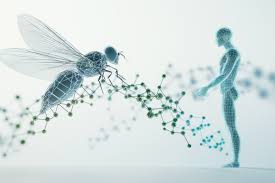Pioneering Approach Links Metabolites in Fruit Flies and Humans to Aging Interventions

A novel research approach at the Buck Institute is revolutionizing the study of lifespan and healthspan by utilizing machine learning and systems biology to connect findings in fruit flies directly to human health. This method allows researchers to analyze vast datasets from both species, significantly streamlining the traditional, resource-intensive process of testing discoveries in mice before considering their relevance to humans. Published in *Nature Communications*, the study suggests that the metabolite threonine could be a promising therapeutic candidate for aging interventions.
Senior author Pankaj Kapahi, PhD, noted the potential of this innovative approach, stating, "There is a lot of data sitting out there that is not being correlated between species. I think this approach could be a game-changer when it comes to identifying potential interventions to improve human health." Threonine, an essential amino acid known for its role in collagen and elastin production, blood clotting, fat metabolism, and immune function, has already shown protective effects against diabetes in mice.
The research began with former Buck postdoc Tyler Hilsabeck, PhD, who analyzed 120 metabolites in 160 fruit fly strains under both restricted and normal diets. This analysis aimed to uncover how different genotypes responded to dietary variations, impacting lifespan and healthspan. Hilsabeck described the challenge of identifying relevant metabolites as finding "needles in the haystack."
Postdoctoral fellow Vikram Narayan, PhD, then cross-referenced these findings with extensive human data from the UK Biobank. This cross-species comparison not only focused on conserved metabolites but also illuminated their impacts on human health. The researchers subsequently validated their findings by reintroducing the relevant metabolites back into the flies.
The results revealed that threonine extended lifespan in a strain- and sex-specific manner, with individuals exhibiting higher levels of threonine-related metabolites enjoying longer and healthier lives. Kapahi cautioned, however, that threonine may not be universally effective, stating, "We're not saying that threonine is going to work in all conditions. Our research shows it works in subsets of both flies and people."
Interestingly, the study also identified metabolites with negative associations with aging. Orotate, a lesser-known metabolite linked to fat metabolism, counteracted the benefits of dietary restriction in fruit flies and was associated with shorter lifespans in humans. Kapahi emphasized the larger implications of their findings, urging the scientific community to adopt this method to enhance the translational relevance of research. "This approach allows us to say with a lot more certainty that discoveries are going to be relevant in humans," he stated, expressing hope that it could reduce reliance on mouse studies in future research.
Story Source:
Materials provided by Buck Institute for Research on Aging. The original text of this story is licensed under a Creative Commons License. Note: Content may be edited for style and length.
Journal Reference:
- Justin R. Ryder, Todd M. Jenkins, Changchun Xie, Anita P. Courcoulas, Carroll M. Harmon, Michael A. Helmrath, Stephanie Sisley, Marc P. Michalsky, Mary Brandt, Thomas H. Inge. Ten-Year Outcomes after Bariatric Surgery in Adolescents. New England Journal of Medicine, 2024; 391 (17): 1656 DOI: 10.1056/NEJMc2404054

0 Comments